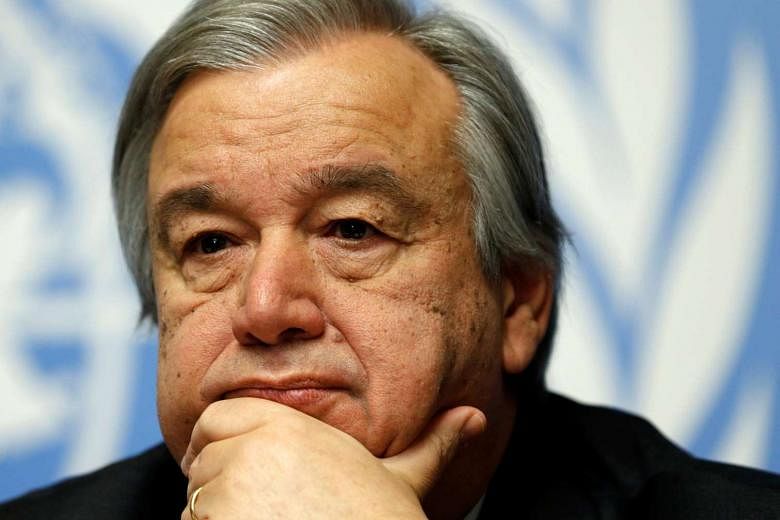Former Portugal Prime Minister Antonio Guterres, 67, is poised to become the United Nations Secretary-General on Jan 1, 2017, after winning the endorsement of the UN's powerful Security Council this week.
The 193-member UN General Assembly will vote on Thursday (Oct 6) on the Security Council's recommendation that Mr Guterres succeeds South Korean Ban Ki Moon when the latter steps down at the end of the year after two five-year terms.
Hopes are high that Mr Guterres, a consummate politician who was the UN High Commissioner for Refugees for a decade until last year, will be a better Secretary-General than Mr Ban, who tenure is widely seen as ineffectual.
Mr Guterres will have his work cut out. The UN top job is envisioned as part "world moderator", part chief administrative officer of a mammoth organisation. It has been described as the "most impossible job" in the world.
THE ROLE
The role of the UN Secretary-General is broadly defined and open to interpretation. The UN itself describes the role as the "chief administrative officer", "equal parts diplomat and advocate, civil servant and CEO".
In working terms, the secretary-general "may bring to the attention of the Security Council any matter which in his opinion may threaten the maintenance of international peace and security". He or she is also required to uphold the values of the UN, even at the risk of challenging member states.
The first Secretary-General, Norwegian Trygve Lie who was in office from 1946 to 1953 when the UN had only 50-plus member states, was only half-joking when he described the post as the "most impossible job on this earth".
Secretary-generals usually come from countries considered small- to medium-sized neutral powers, are career diplomats, and serve no more than two five-year terms.
The continents take turns to have a representative at the helm, with nationals of the five permanent members of the Security Council - the United States, China, Russia, France, and Britain - ineligible.
Mr Guterres will be taking on the job at a time of heightened tension between Russia and the West, the Syrian war, terrorism, climate change, and record displacement of 65 million people due to war and persecution. The socialist politician has pledged to revamp the UN to boost its peacemaking efforts and promote human rights.
"This will be a job that won't be short of things to be done. He is walking into the storm. But he's a person who likes challenges,"said Michael Doyle, a former UN assistant secretary general under Mr Kofi Annan and director of Columbia University's Global Policy Initiative.
Main responsibilities
Administrative and human resources: The secretary-general oversees the UN Secretariat or the executive office, which handles UN operations, including research, translation, and media relations. The Secretariat is huge; it has total staff of 40,131 from 187 member states as of June 2016. The Secretary-General is assisted by the deputy secretary-general and dozens of under-secretaries-general.
Peacekeeping: The secretary-general's office oversees peacekeeping missions, which currently number 16 and involve some 110,000 personnel. The secretary-general has operational control of the missions although they are usually initiated by the General Assembly or Security Council.
Mediation: The secretary-general is expected to leverage his independence and impartiality as the head of a global organisation to prevent and stop the spread of conflict. Most recently, Mr Ban has offered to mediate between India and Pakistan in the flare up of tensions over disputed Kashmir.
Selection process
In the past, selecting a new secretary-general was done behind closed doors and with a lot of backroom brokering. This year the process has been more transparent: 13 candidates put their names forward, submitted resumes and publicly answered questions about what they would do in the job.
The Security Council selects a candidate for the General Assembly's 193 members to vote on. Any of the five permanent members of the Security Council can eliminate a nominee with a veto. A candidate also needs at least nine votes from the 10 elected members of the Council to be recommended as secretary-general.


